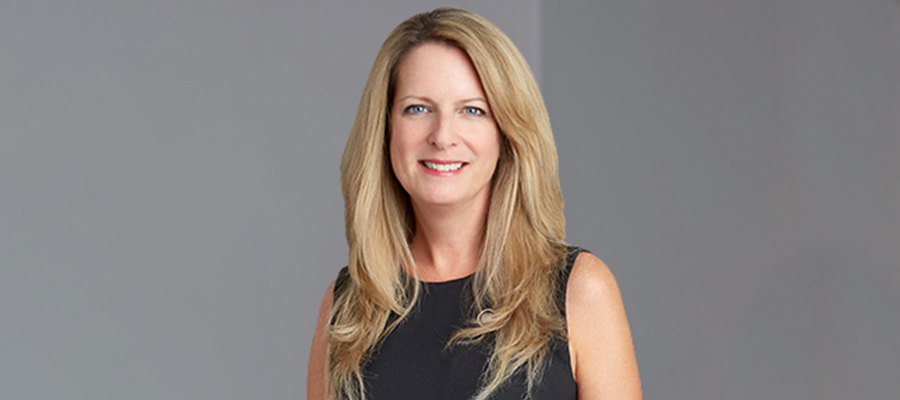

January 17, 2024
After more than 25 years in Aboriginal Law, Sandra Gogal says the practice area has changed dramatically from the one she got her start in.
Gogal, a partner in the Aboriginal Law Group at Cassels Brock & Blackwell LLP in Toronto, embarked on her aboriginal practice with a secondment to a Crown agency to work on a $10 billion hydro development project in Newfoundland and Labrador, before moving to Ontario to make a name for herself as a trusted advisor to resource developers, investors and governments on a variety of matters in the area.
“There was very little precedent to guide you in the early days of my practice for those projects that were subject to the duty to consult and accommodate. You were really in uncharted waters, because the law with respect to consultation was not fully developed,” says Gogal, who recently stepped down from her position as co-chair of the Osgoode Certificate in Fundamentals of Indigenous Peoples and Canadian Law.
Having initiated the program’s foundation back in 2015, Gogal has had a front-row seat from which to track the considerable legal developments in the area.
“The law has changed dramatically,” she says.
In her own practice, Gogal has noticed that her clients now ask her what they should do to accommodate Indigenous peoples rather than what is legally necessary to obtain regulatory permits. Their approach is more in favour of achieving agreements with Indigenous communities, she adds.
“From an industry perspective, the conversation now is about achieving community support and reconciliation, rather than the bare minimum legal compliance or risk management,” Gogal says. “We’ve now done numerous project development agreements with Indigenous communities in the resource sector, so everyone has a much better understanding of what is considered the best practice in the industry.”
“For me, success is achieving a mutually beneficial agreement,” she adds.
Long before she was nationally recognized for her expertise in Aboriginal Law, Sandra Gogal entered the legal profession in her home province of Newfoundland and Labrador with a general practice, starting off initially in criminal law and then family law.
Within 5 years of graduating Dalhousie Law school, Gogal found her true calling in the late 1990s when she was asked to get involved with Newfoundland and Labrador Hydro’s negotiations with the Innu Nation over a development to expand the capacity of the province’s massive Churchill Falls generating facility.
“I enjoyed immensely the negotiations with those communities, taking the time to understand their interests and finding common ground so that the company and the community could benefit from the development,” Gogal says.
From that moment, Gogal began looking for any opportunity she could to work on Aboriginal law matters, but the opportunities were limited in her home province. So when she saw a one year contract position posted to work with the Attorney General’s office in Ontario for the Ministry of Natural Resources to assist with legislative and policy development concerning the province’s duty to consult, Gogal threw her hat in the ring.
“I wasn’t sure I could compete for the position nationally, but I got the job,” Gogal says.
More than 15 years later, she is still practicing Aboriginal law in Ontario and has never looked back.
“Going to Ontario was a great opportunity given the number of Aboriginal communities and potential resource development work,” Gogal says. “Initially, and I would add, naively, I believed that the existence of historical treaties with the Crown would have added more clarity with respect to consulting on Aboriginal rights – but it was far less resolved and Aboriginal rights were less understood than I expected or encountered in dealing with unresolved aboriginal title claims in Labrador .”
After joining a national Toronto law firm following her position with the provincial government, Gogal got her first exposure to OsgoodePD in 2014 when she completed its Certificate in Mining Law – a program on whose teaching faculty she has since served.
Noticing the level of interest among the attendees during the mining certificate’s single session touching on Aboriginal Law issues, Gogal approached Osgoode about the possibility of developing a program devoted entirely to the subject.
The following year, the six-day Fundamentals of Indigenous Peoples and Canadian Law certificate program was born, with Gogal as chair. In subsequent editions, Gogal – who is not Aboriginal herself – added an Indigenous lawyer to co-chair the program to ensure the Indigenous perspective was equally presented. During the last few editions she has had the pleasure of working with her co-chair, Renée Pelletier of Olthuis Kleer Townshend LLP, who acts for Indigenous clients on treaty rights and consultation matters.
“The faculty at Osgoode have been truly outstanding. I was so impressed by their willingness to volunteer their time to assist with developing the program from the onset of the idea,” Gogal says.
Over the years, the certificate has expanded its reach, attracting lawyers from across the country in private practice and in government. In recent years, practitioners and non-lawyers from distant or isolated Canadian communities including people south of the border have taken advantage of remote learning options to attend from home.
“I’m always impressed by the calibre and interest of the participants in class. Their questions and insights have helped improve the course content year after year. It’s a great testament to the program,” Sandra Gogal says.
Want to learn more about the Osgoode Certificate in Fundamentals of Indigenous Peoples and Canadian Law?

